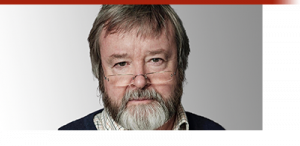Subscribe: Spotify | RSS | More
Jim talks with Iain McGilchrist about his new book, The Matter With Things: Our Brains, Our Delusions, and the Unmaking of the World…

- Episode Transcript
- JRS EP143 – John Vervaeke Part 1: Awakening from the Meaning Crisis
- JRS EP106 – Michael Strevens on the Irrational History of Science
- Game-B.org
- The Origins of Order: Self-Organization and Selection in Evolution, by Stuart Kauffman
- Antifragile: Things That Gain from Disorder, by Nassim Nicholas Taleb
- JRS EP5 Lee Smolin – Quantum Foundations and Einstein’s Unfinished Revolution
- Primary consciousness (Wikipedia)
- JRS EP105 – Christof Koch on Consciousness
- A Cooperative Species: Human Reciprocity and Its Evolution by Samuel Bowles, by Herbert Gintis
Iain McGilchrist is a former Fellow of All Souls College, Oxford, an associate Fellow of Green Templeton College, Oxford, a Fellow of the Royal College of Psychiatrists, a Fellow of the Royal Society of Arts, a Consultant Emeritus of the Bethlem and Maudsley Hospital, London, a former research Fellow in Neuroimaging at Johns Hopkins University Medical School, Baltimore, and a former Fellow of the Institute of Advanced Studies in Stellenbosch. He now lives on the Isle of Skye, off the coast of North West Scotland, where he continues to write, and lectures worldwide. He is committed to the idea that the mind and brain can be understood only by seeing them in the broadest possible context, that of the whole of our physical and spiritual existence, and of the wider human culture in which they arise – the culture which helps to mould, and in turn is moulded by, our minds and brains.
